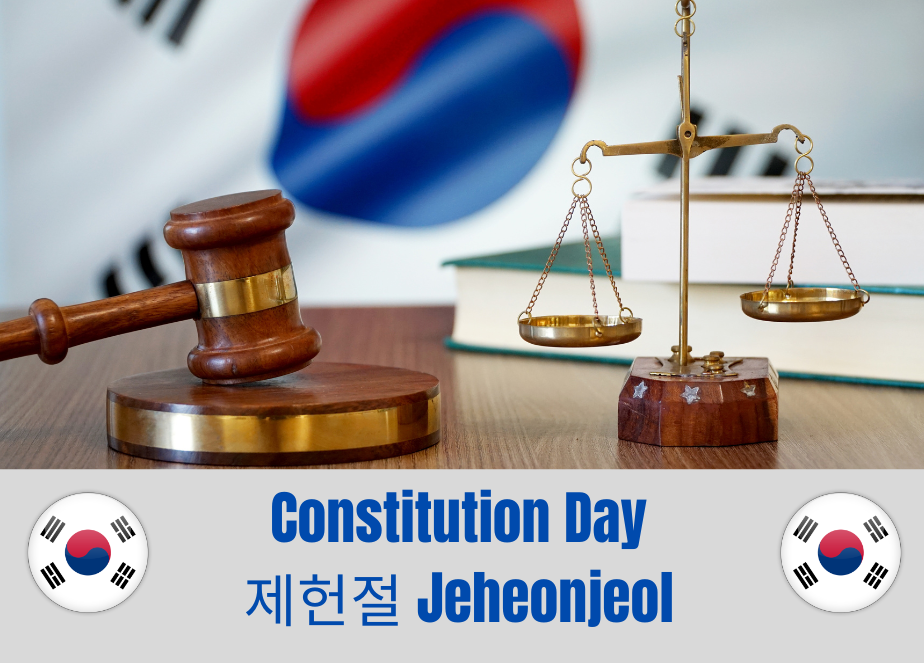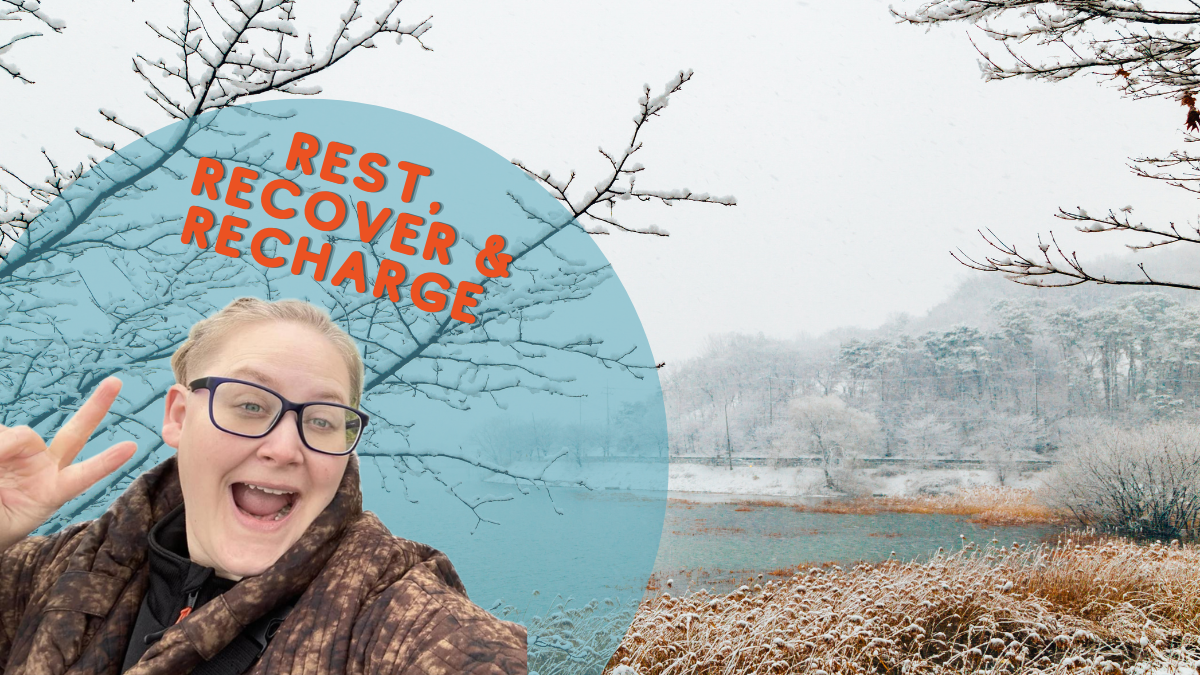
Celebrate Holidays in Korea
So you moved to South Korea, what will your holidays look like now? Do you start celebrating local holidays or do you import your own traditions? These are questions we all need to explore when we become residents of a new country with a new culture. The following blog post digs into what it means to adapt to Korea’s holidays while also considering your own.
Holiday Adaptation v. Cultural Appropriation
It’s not intrinsically cultural appropriation to follow the holiday practices of the country you live in. So, let’s talk about it. Cultural adaptation and cultural appropriation are two concepts that relate to how individuals and groups interact with and adopt aspects of other cultures. While both involve some form of engagement with cultures outside one’s own, there is a fundamental difference between the two.
Cultural adaptation refers to the process of modifying one’s behavior or cultural practices to fit into a different cultural context. It can involve adopting new customs, beliefs, or behaviors to better integrate into a new environment. It may include learning about and respecting the traditions and values of the culture being adapted to. For example, a person who moves to a new country may learn that country’s language, customs, and social norms to better assimilate into their new community. This is VERY important for feeling connected and “at home” within a new culture.
On the other hand, cultural appropriation refers to taking elements of a culture that is not one’s own without proper understanding or respect for their meaning or significance. This can include adopting aspects of a culture without permission or using them disrespectfully or insensitively. Cultural appropriation is often problematic because it can perpetuate harmful stereotypes and reduce cultural practices to mere fashion trends or accessories.
It’s important to note that the line between cultural adaptation and cultural appropriation is not always clear-cut and can be a matter of perspective. Ultimately, whether an individual’s behavior is considered cultural adaptation or appropriation depends on the intention behind their actions and their impact on the cultures involved. In order to understand how to adapt to a culture rather than appropriate a culture requires attention to the history of the culture you have entered, how your own culture’s history, and empathy for others’ perspectives. It’s not easy, but it’s worth it to explore and grow in understanding.
The Value of Holiday Adaptation
Culturally Adapting to the holidays of the culture you live in can have many benefits, including:
- Building relationships: Participating in cultural holidays and celebrations can help build relationships with members of your local community. You can create a sense of unity and understanding by showing an interest in and respect for their traditions.
- Learning about the culture: Participating in cultural holidays and celebrations can also provide an opportunity to learn more about the culture and history of your community. This can help deepen your understanding and appreciation of their customs, beliefs, and values.
- Enhancing your own experience: Celebrating cultural holidays can also enhance your own experience of living in a new place. Participating in local traditions makes you feel more connected to the community and gain a greater sense of belonging.
Overall, adapting to the holidays of the culture you live in can be a valuable way to connect with your community, learn about new cultures, and enhance your own experience of living in a diverse world. Adaptation can help you feel “at home”.


The previous photos show preparations for an ex-pat family’s Chuseok dinner in South Korea.
A Framework for Holiday Adaptation
Since cultural adaptation is not easy, it’s often helpful to have a framework that helps you create a process. One framework that can be used for adapting to holidays in a new country is the “Cultural Intelligence” (CQ) framework. This framework involves four key components:

- Cognitive CQ: This involves developing knowledge and understanding of the cultural traditions and customs of the country you are living in. This can be achieved through research, reading, and talking to locals. South of Seoul volunteers created this Holidays in Korea post to help create a foundation for this step of the framework.
- Physical CQ: This involves adapting your behavior to fit in with the cultural norms of the country. For example, dressing appropriately for religious holidays or respecting local customs. South of Seoul holiday posts provide examples of how you may adapt your behavior to better fit with social norms during the holidays.
- Emotional CQ: This involves developing empathy and a positive attitude towards the culture you are living in. It is important to have an open mind and be willing to learn and appreciate cultural differences. The process of building empathy for local traditions and learning what they mean on a deeper level requires conversations and participation over time.
- Behavioral CQ: This involves being able to adjust your behavior and communication style to fit the cultural context. For example, being aware of non-verbal cues and adapting your language and tone to be more appropriate. This could include using Korean phrases and greetings during the holidays.
Benefits of Using a Framework
Using a Cultural Intelligence framework like the one above may help individuals adapt to holidays in a new country by providing a structured approach to understanding and respecting local customs and traditions. By developing knowledge, adapting behavior, cultivating empathy, and adjusting communication, individuals can better navigate the cultural nuances of holidays in South Korea.
Additionally, a variety of Cultural Intelligence frameworks exist. We recommend reading up on different ones to find the perfect one for you. We simply present this option to help you find your framework that works with your worldview, learning strengths, etc. In order to make any framework successful, you need to find one that both works with and challenges your social lens.
Korean Holidays
South Korea has several types of holidays, including:
- National Holidays: These are holidays that are celebrated throughout the country and include New Year’s Day (January 1), Independence Movement Day (March 1), Memorial Day (June 6), National Liberation Day (August 15), Foundation Day (October 3), and Christmas Day (December 25). They may or may not be ‘Red Days’.
- Traditional Holidays: These holidays are based on traditional Korean culture and include Lunar New Year’s Day (Seollal), which is celebrated in January or February, and Chuseok, which is a harvest festival celebrated in September or October.
- Special Holidays: These holidays are either temporary or regional and include Children’s Day (May 5), Buddha’s Birthday (May 8), and Teacher’s Day (May 15).
- Public Holidays: These holidays are designated as national holidays or public holidays by the government and include Labor Day (May 1), Hangul Day (October 9), and Armed Forces Day (October 1). These are all ‘red days’.
- Korean Love Holidays: These holidays include such days as Black Day, White Day, and Valentine’s Day. Every month has one love holiday on the 14th.
Some Korean Holidays are Based on the Lunar Calendar
It’s worth noting that the actual dates for some holidays, such as Lunar New Year’s Day and Chuseok, can vary slightly each year based on the lunar calendar. You will need to check the dates each year to confirm when the holidays happen.
Major Korean Holidays (Red Calendar Days):
During official holidays (also referred to as “red days” in Korea), you will find that offices, banks, schools, and government buildings close but locations such as department stores, museums, palaces, and amusement parks may be open.
The most important traditional holidays in Korea are Seollal 설날 (Lunar New Year) and Chuseok 추석. During these holidays, many Koreans will travel to visit their hometowns and spend time celebrating with their families. While most of Korea’s major holidays follow the Gregorian calendar, the dates for Seollal and Chuseok are based on the Korean calendar which is a lunisolar calendar (which means it is tracking the phases of the moon and earth’s trip around the sun).
New Year’s Day – January 1
New Year’s Day is celebrated a little differently in Pyeongtaek. Whereas you might stay up until midnight to celebrate the New Year, in South Korea it’s all about waking up early (or staying up all night) and welcoming in the sunrise on the first day of the year.
Lunar New Year (Seollal 설날)
The Lunar New Year changes each year and usually occurs in January or February. Depending on how the holidays fall, Koreans may have 3-5 days holiday during this time. In Korea, and across Asia, the culture places more of a focus on the Lunar New Year than the Western New Year. Here in Korea, we refer to Lunar New Year as Seollal (설날).
Independence Movement Day (Samiljeol 삼일절) – March 1
Independence Movement Day, or Samiljeol, commemorates and pay respect to those who lost their lives fighting and protesting for Korean independence. In addition, Koreans celebrate their ultimate independence from Japanese rule. It is celebrated annually on March 1.
Children’s Day (Eorininal 어린이날) – May 5
Celebrated on May 5, Koreans set aside time on Children’s Day to spend together as a family away from work and school.
Buddha’s Birthday
Typically in May, Buddha’s Birthday is celebrated on the lunar calendar, so the date is different each year.
Memorial Day (Hyeonchung-il 현충일) – June 6
Memorial Day or Hyunchungil 현충일 sets aside June 6 to remember and honor the sacrifices and contributions of fallen soldiers and military personnel who died serving their country. In addition, Memorial Day commemorates the sacrifices of those from the Korean War, Vietnam War, the Battle of Bongoh Town, and the Battle of Cheongsanri.
National Liberation Day (Gwangbokjeol 광복절) – August 15
National Liberation Day or Gwangbokjeol (광복절) is celebrated on August 15 in Korea. This marks the end of Japanese colonial rule in Korea and its independence and is a turning point in Korea’s history.
Chuseok 추석
The date of Chuseok changes since it is based on the Lunar Calendar. It happens in either September or October. Chuseok (like Christmas and Thanksgiving) is only one day, but the holiday is between 4 -7 days in length depending on the year. Businesses might be closed 1-7 days depending on their family commitments.
National Foundation Day (Gaecheonjeol 개천절) – October 3
National Foundation Day celebrates Korea’s birth, specifically the legend regarding the creation of the state of Gojoseon in 2333 BC.
Hangul Day 한글날 – October 9
Hangul Day is the representative birthday of the Korean alphabet celebrated annually on October 9.
Christmas Day – December 25
In Korea Christmas isn’t about giving gifts or decorating the house. Instead, it is a couple’s holiday similar to Valentine’s day when lovebirds go out on dates. In the past years, you will see more decorations available and many areas will put up beautiful light displays. Also, some families have adopted some traditions from the western culture and have begun exchanging gifts as well.
Other Holidays in Korea: Korean Love Holidays
Korea has several love holidays that are celebrated throughout the year. One of the most popular ones is Valentine’s Day, which is celebrated on February 14th. On this day, women typically give chocolates to the men in their lives, such as boyfriends, husbands, and coworkers. A month later, on March 14th, men return the favor on White Day by giving candy, flowers, or other gifts to the women in their lives. Another love holiday is Pepero Day, which falls on November 11th. On this day, people exchange boxes of Pepero, a popular Korean snack, as a symbol of their affection. Finally, there’s also Black Day on April 14th, which is a day for singles to gather and commiserate over being alone by eating black bean noodles together. Overall, Korea’s love holidays provide an opportunity for people to express their affection for one another and celebrate love in various forms.
You can learn about more love holidays by checking out this blog from The Soul of Seoul on all of Korea’s love holidays.
Korean National Holidays
Constitution Day Jeheonjeol 제헌절 – July 17
International Holidays in Korea
Of course, celebrating the traditions we bring from home remains important. Different areas of South Korea may offer international holiday traditions as well. You can see how international holidays in South Korea may be celebrated.
Diwali
Ramadan
Canadian & US Thanksgiving
Halloween

Founded in 2015, the South of Seoul team consists of volunteers on three continents working together to support English-speaking people traveling or living in South Korea. South of Seoul volunteers work with organizations and individuals across South Korea to improve equitable access to information across South Korea. Much of South of Seoul’s information focuses on Pyeongtaek, Gyeonggi-do, South Korea.
Blogs published under the authorship of “South of Seoul” include blogs compiled by multiple volunteers to improve access to standardized information unrelated to individualized personal experiences.





